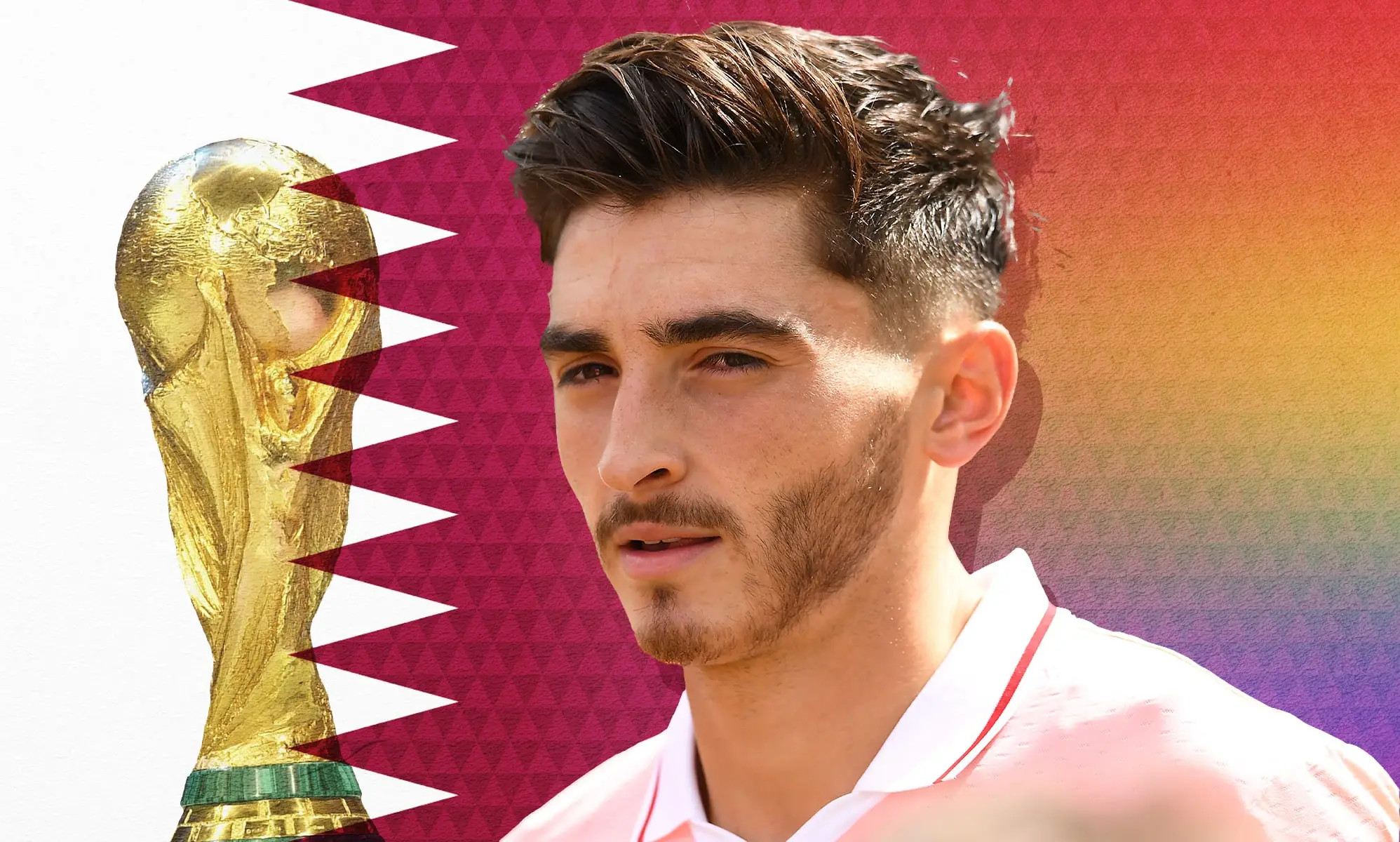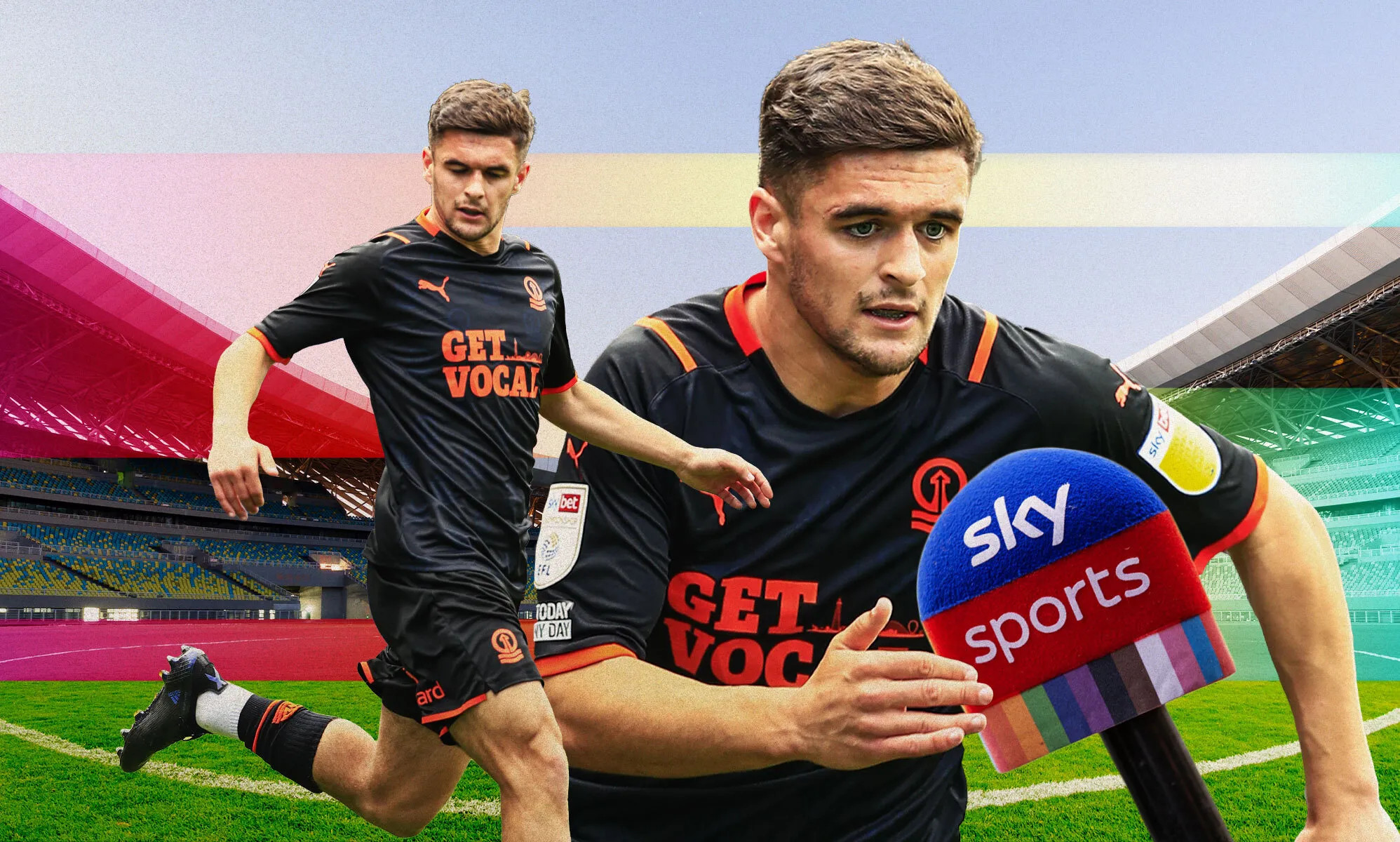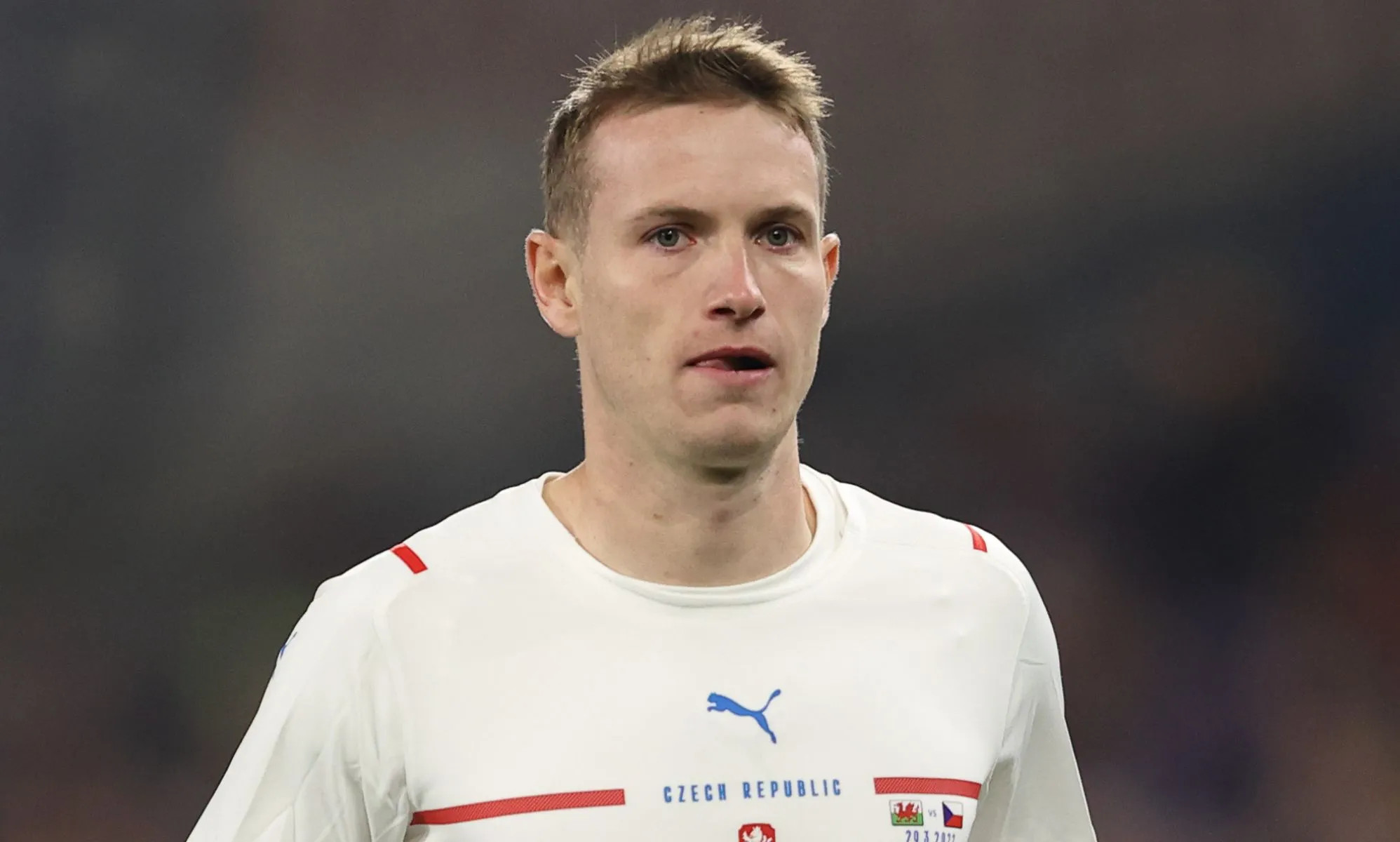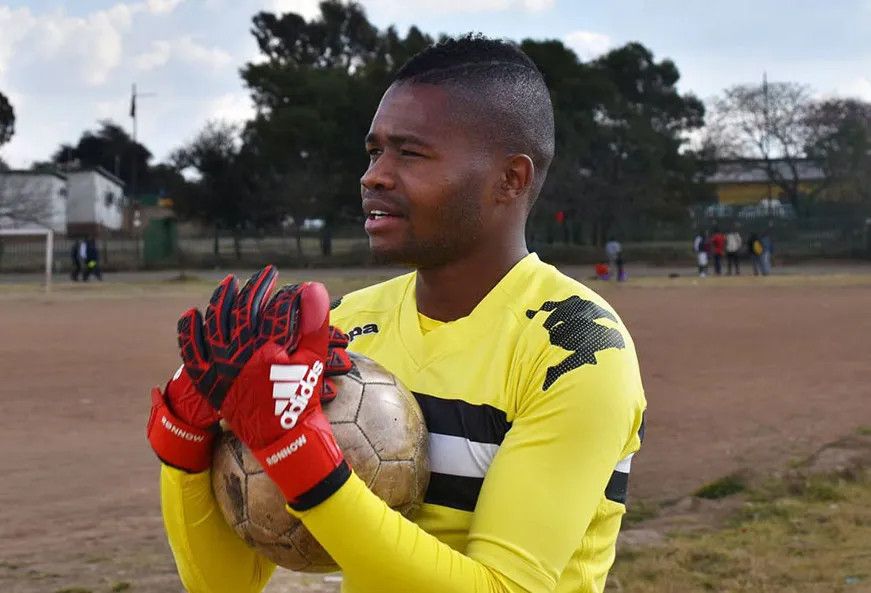Are you curious about the number of openly gay football players? It’s a topic gaining more visibility. Currently, the number is small, but growing, with inspiring athletes like Jake Daniels and Collin Martin leading the way. CAUHOI2025.UK.COM offers insights and updates on LGBTQ+ representation in sports. Explore the journeys of these courageous individuals and discover resources for support and understanding. Learn about the challenges and triumphs of openly gay football players and find out how you can contribute to a more inclusive sports environment.
1. The Current Landscape of Openly Gay Football Players
The world of men’s professional football has been slow to embrace LGBTQ+ representation, but progress is being made. While the number of openly gay professional footballers remains small, their visibility is increasing, paving the way for a more inclusive future.
As of late 2023 and early 2024, there are a handful of openly gay male professional footballers. These athletes have bravely shared their stories, contributing to greater awareness and acceptance within the sport. This visibility is crucial for inspiring others and challenging stereotypes that have long persisted in the football community.
It’s important to note that the number can fluctuate as players retire or new players come out. As attitudes evolve and support systems strengthen, the hope is that more players will feel comfortable and safe being open about their sexuality.
1.1. Key Figures and Their Impact
Several players have made significant contributions to LGBTQ+ visibility in football. These individuals have not only excelled on the field but have also become advocates for inclusion and equality.
- Josh Cavallo: Playing for Adelaide United in Australia, Cavallo came out publicly in October 2021. His announcement made him one of the few active openly gay male top-flight professional footballers in the world at that time.
- Jake Daniels: A forward for Blackpool FC in England, Daniels came out in May 2022, becoming the first UK male professional footballer to come out publicly since Justin Fashanu in 1990.
- Collin Martin: A midfielder for North Carolina FC in the USA, Martin came out as gay in 2018 while playing for Minnesota United FC in Major League Soccer.
- Jakub Jankto: Playing for Cagliari Calcio in Italy, Jankto publicly came out in February 2023, becoming the first active senior international men’s footballer to do so.
- Phuti Lekoloane: A goalkeeper for Tornado FC in South Africa, Lekoloane came out publicly in July 2015.
These players have not only inspired others but have also used their platforms to speak out against homophobia and discrimination. Their bravery has helped create a more welcoming environment for LGBTQ+ athletes in football.
 Josh Cavallo next to the World Cup
Josh Cavallo next to the World Cup
1.2. Challenges and Progress
Despite the progress, homophobia remains a significant issue in men’s football. Many players may still fear coming out due to potential backlash from fans, teammates, or management.
According to a 2023 study by the University of Pennsylvania’s Center for LGBTQ+ Health, athletes who identify as LGBTQ+ often face discrimination, harassment, and exclusion in sports. These challenges can lead to mental health issues, decreased performance, and a reluctance to be open about their sexuality.
However, there are signs of positive change. Initiatives aimed at tackling homophobia in football are gaining momentum, and more clubs and organizations are actively promoting inclusivity.
For instance, the English Premier League has partnered with LGBTQ+ organizations to raise awareness and implement anti-discrimination policies. Similarly, FIFA has launched campaigns to promote diversity and inclusion in football.
2. Profiles of Openly Gay Football Players
Let’s take a closer look at some of the openly gay football players who have made a significant impact on the sport.
2.1. Josh Cavallo – Adelaide United, Australia
Josh Cavallo plays left back and central midfielder for Australian A-League team Adelaide United. The 24-year-old star came out publicly as gay in October 2021 in an emotional open letter and heartfelt video posted on social media.
As he came out, Cavallo said that he wanted to use his platform to build more bridges for the LGBTQ+ community. His announcement saw him become the world’s only active out gay male top-flight professional footballer at the time.
Since opening up about his sexuality, Cavallo has used his voice to speak out against FIFA’s decision to penalized athletes who wore the OneLove diversity armband at the 2022 World Cup. He also condemned the competition being held in Qatar, where same-sex sexual relations are illegal.
According to a 2022 interview with The Guardian, Cavallo said he received an outpouring of support from fans and fellow players after coming out. However, he also faced online abuse and discrimination, highlighting the ongoing challenges faced by LGBTQ+ athletes.
Cavallo has also been open about his friendship with Thomas Beattie, a retired English footballer who came out as gay after the end of his career. The Australian star shared that he’s “worked closely” with Beattie and said the former Warriors FC player “opened [his] eyes” to the power of coming out publicly.
Josh Cavallo also recently revealed he wouldn’t go to the 2034 FIFA World Cup in Saudi Arabia if selected, because of the country’s anti-gay laws.
2.2. Jake Daniels – Blackpool FC, England
Footballer Jake Daniels is a forward for English Football League Championship club Blackpool. In May 2022, the then-17-year-old striker became the UK’s first professional male footballer to come out publicly as gay since Justin Fashanu in 1990.
At the time, Daniels told Sky Sports News that he was “ready to tell people my story” as he wants fans to “know the real me”. Daniels explained that he wanted to come out so that he could live his life how he wanted, and in the hope that he could “be a role model” to others who may want to do the same.
Despite his young age, Daniels, now 19, has handled the media frenzy that followed with grace.
In a Channel 4 documentary, Out and Proud in Football, Daniels explains that Tom Daley’s 2021 alternative Christmas message encouraging “one impossibly brave Premier League player” to come out publicly had a big impact on him, prompting him to share his story.
In December 2023, Daniels told Daily Star Sport how after coming out, he’s received nothing but support from his teammates and the main pressure he feels is to simply prove that he’s a good footballer, as all players do.
“Obviously I am a gay footballer, but at the end of the day, I am just a footballer and I just want to be a professional footballer. That is my main focus,” he said.
 Blackpool FC
Blackpool FC
2.3. Collin Martin – North Carolina FC, USA
Collin Martin is a midfielder for North Carolina FC, and previously played for San Diego Loyal in the USL Championship. He publicly came out as gay in 2018 while playing for while playing for Minnesota United FC in the Major League Soccer.
On coming out, Martin later told ESPN: “I want [my clubs] to want me as a soccer player, and as a person.”
According to a 2020 interview with Outsports, Martin said that coming out helped him feel more authentic and connected to his teammates. He also noted that he received support from his club and fans, which encouraged him to continue speaking out on LGBTQ+ issues.
The 29-year-old previously told the Daily Express that he believes the lack of LGBTQ+ representation could be down to agents “advising” stars to stay in the closet.
He has also been vocal about the 2022 FIFA World Cup in Qatar and during a December interview with PinkNews said his “biggest disappointment” during the tournament was world governing body FIFA’s apparent apathy on LGBTQ+ rights.
He said: “There has been no interest from FIFA in trying to actually improve the lives of the people that are living there. I think it should have been awarded to a more progressive country that’s willing to open its doors to everyone.”
2.4. Jakub Jankto – Cagliari Calcio, Italy
Czech player Jakub Jankto is the most recent male pro footballer to publicly come out. He was previously a player for Sparta Prague where he was on loan from Spanish La Liga outfit Getafe.
He posted a moving clip to social media declaring his sexuality in February 2023, becoming the first active senior international men’s footballer to do so.
In it, he bravely announced that he wants to live his life “in freedom, without fears, without prejudice, without violence, but with love”.
The 28-year-old midfielder, who has been capped 45 times by the Czech Republic national team, said in the viral clip: “I am homosexual, and I no longer want to hide myself.”
Messages of solidarity flooded in following Jankto’s post, with Sports Media LGBT+ founder Jon Holmes stating the moment was “history-making for the men’s game”.
Holmes told Sky Sports: “Jakub is the first active senior international player to come out as gay or bisexual publicly. That in itself is a really significant moment for football.”
In October 2023, he said that if he could come out as gay again, he would, because now he can do what he loves “without hiding or being scared.”
 Jakub Jankto during a football match.
Jakub Jankto during a football match.
3. The Impact of Coming Out on Players and the Sport
When a football player comes out as gay, it has a profound impact not only on the individual but also on the sport as a whole. The decision to be open about one’s sexuality can be both liberating and challenging, and it often requires immense courage.
3.1. Personal Transformation
For many players, coming out is a transformative experience that allows them to live more authentically and without fear. The burden of hiding their true selves can be incredibly taxing, and being open about their sexuality can bring a sense of freedom and relief.
Collin Martin, for example, has spoken about how coming out helped him feel more connected to his teammates and more comfortable in his own skin. Similarly, Jake Daniels has said that he wanted to come out so that he could live his life how he wanted and be a role model to others.
According to a 2021 study by the Human Rights Campaign, LGBTQ+ individuals who are out at work report higher levels of job satisfaction and lower levels of stress compared to those who are not out. This finding suggests that being open about one’s sexuality can have significant mental health benefits.
3.2. Breaking Barriers and Inspiring Others
Openly gay football players serve as role models for other LGBTQ+ athletes and fans. Their visibility helps break down stereotypes and challenges the perception that football is not a welcoming space for LGBTQ+ individuals.
Josh Cavallo’s decision to come out, for instance, made him one of the few active openly gay male top-flight professional footballers in the world at the time. His announcement inspired countless others and helped raise awareness of the challenges faced by LGBTQ+ athletes.
A 2022 report by GLAAD found that visibility of LGBTQ+ characters in media has a positive impact on public attitudes towards LGBTQ+ people. This finding suggests that increased representation of LGBTQ+ athletes in sports can help promote acceptance and understanding.
3.3. Addressing Homophobia
The presence of openly gay football players can also help address homophobia within the sport. By speaking out against discrimination and promoting inclusivity, these athletes can help create a more welcoming environment for LGBTQ+ individuals.
However, it’s important to acknowledge that homophobia remains a significant issue in football. Many players may still face discrimination and harassment, and some may fear coming out due to potential backlash.
According to a 2023 study by the University of Leicester, homophobic chanting and abuse are still prevalent at football matches in the UK. This finding highlights the need for continued efforts to combat homophobia in the sport.
3.4. Creating Inclusive Environments
To fully support LGBTQ+ athletes, it’s essential to create inclusive environments at all levels of football. This includes implementing anti-discrimination policies, providing training and education on LGBTQ+ issues, and promoting a culture of respect and acceptance.
Many organizations are working to create more inclusive environments in football. For example, the English Premier League has partnered with LGBTQ+ organizations to raise awareness and implement anti-discrimination policies. Similarly, FIFA has launched campaigns to promote diversity and inclusion in football.
According to a 2020 report by Stonewall, creating inclusive environments for LGBTQ+ individuals requires a multi-faceted approach that includes policy changes, training and education, and visible support from leadership.
4. The Role of Allies and Organizations
Creating a truly inclusive environment in football requires the active support of allies and organizations that champion LGBTQ+ rights. Their efforts are crucial in fostering acceptance, combating discrimination, and providing resources for LGBTQ+ athletes and fans.
4.1. Allies in Football
Allies play a vital role in supporting openly gay football players. These individuals, who may be teammates, coaches, fans, or members of the media, can help create a welcoming and inclusive environment by speaking out against homophobia and showing their support for LGBTQ+ athletes.
According to a 2022 study by the University of California, Berkeley, allyship is essential for promoting LGBTQ+ inclusion in sports. Allies can help create a more supportive environment by challenging discriminatory behavior, advocating for policy changes, and educating others about LGBTQ+ issues.
Many high-profile figures in football have come out as allies, including players, coaches, and club executives. Their public support can help normalize LGBTQ+ identities and encourage others to be more accepting.
4.2. LGBTQ+ Organizations
Several organizations are dedicated to promoting LGBTQ+ inclusion in sports. These groups provide resources, advocacy, and support for LGBTQ+ athletes and fans, and they work to combat homophobia and discrimination in football.
- Athlete Ally: This organization works to end homophobia and transphobia in sports by educating athletes, coaches, and fans about LGBTQ+ issues.
- Stonewall: A leading LGBTQ+ rights organization in the UK, Stonewall works to create a world where all LGBTQ+ people are accepted without exception.
- GLAAD: This organization works to promote LGBTQ+ representation in the media and advocate for LGBTQ+ rights.
These organizations offer a range of services, including training and education programs, advocacy campaigns, and support groups for LGBTQ+ athletes. They also work to raise awareness of LGBTQ+ issues and challenge discriminatory policies and practices.
4.3. Promoting Inclusivity
To create a truly inclusive environment in football, it’s essential to address the root causes of homophobia and discrimination. This includes challenging stereotypes, promoting education and awareness, and implementing policies that protect LGBTQ+ athletes and fans.
Many clubs and organizations are taking steps to promote inclusivity. For example, some clubs have partnered with LGBTQ+ organizations to offer training and education programs for players, coaches, and staff. Others have implemented anti-discrimination policies and created LGBTQ+ fan groups.
According to a 2021 report by the Equality and Human Rights Commission, promoting inclusivity requires a comprehensive approach that includes policy changes, training and education, and visible support from leadership.
5. Looking Ahead: The Future of LGBTQ+ Representation in Football
While progress has been made, there is still much work to be done to create a truly inclusive environment in football. The future of LGBTQ+ representation in the sport depends on continued efforts to combat homophobia, promote inclusivity, and support LGBTQ+ athletes and fans.
5.1. Continued Progress
In recent years, there has been a growing awareness of LGBTQ+ issues in football, and more players are feeling comfortable coming out. This trend is likely to continue as attitudes evolve and support systems strengthen.
According to a 2023 report by the Williams Institute at UCLA School of Law, public support for LGBTQ+ rights is growing in many countries, including the United States. This trend suggests that there will be increasing pressure on sports organizations to be more inclusive of LGBTQ+ individuals.
However, it’s important to acknowledge that progress is not always linear. There may be setbacks and challenges along the way, and it’s essential to remain vigilant and continue advocating for LGBTQ+ rights.
5.2. Overcoming Challenges
Despite the progress, homophobia remains a significant issue in football. Many players may still fear coming out due to potential backlash from fans, teammates, or management.
According to a 2022 study by the University of Birmingham, homophobic chanting and abuse are still prevalent at football matches in the UK. This finding highlights the need for continued efforts to combat homophobia in the sport.
To overcome these challenges, it’s essential to create a culture of respect and acceptance in football. This includes implementing anti-discrimination policies, providing training and education on LGBTQ+ issues, and promoting visible support from leadership.
5.3. Encouraging Future Generations
One of the most important things we can do to promote LGBTQ+ representation in football is to encourage future generations of athletes to be themselves. This includes creating safe and supportive environments where young LGBTQ+ athletes feel comfortable coming out and pursuing their dreams.
According to a 2021 report by The Trevor Project, LGBTQ+ youth who have at least one accepting adult in their lives report significantly lower rates of suicide attempts. This finding highlights the importance of creating supportive environments for young LGBTQ+ people.
By celebrating the achievements of openly gay football players and promoting inclusivity at all levels of the sport, we can inspire future generations to be proud of who they are and to pursue their passions without fear.
FAQ: Openly Gay Football Players
1. How Many Openly Gay Football Players Are There currently?
The number fluctuates, but a handful of professional male footballers are openly gay, including Josh Cavallo, Jake Daniels, and Collin Martin.
2. Why are there so few openly gay football players?
Homophobia in football remains a challenge. Players may fear discrimination from fans, teammates, or management.
3. What impact does coming out have on a player’s career?
Coming out can be liberating, allowing players to live authentically. It can also lead to increased visibility and opportunities for advocacy.
4. How can I support openly gay football players?
Show support by challenging homophobia, promoting inclusivity, and advocating for LGBTQ+ rights in sports.
5. What organizations support LGBTQ+ athletes?
Organizations like Athlete Ally, Stonewall, and GLAAD provide resources, advocacy, and support for LGBTQ+ athletes.
6. What is being done to address homophobia in football?
Initiatives include anti-discrimination policies, training and education programs, and partnerships with LGBTQ+ organizations.
7. How can football become more inclusive?
Creating inclusive environments requires policy changes, training and education, and visible support from leadership.
8. What role do allies play in supporting LGBTQ+ athletes?
Allies create a welcoming environment by speaking out against homophobia and showing support for LGBTQ+ athletes.
9. What are the benefits of LGBTQ+ representation in football?
Increased representation breaks down stereotypes, promotes acceptance, and inspires future generations of athletes.
10. What can I do if I witness or experience discrimination in football?
Report the incident to the appropriate authorities, such as the club, league, or LGBTQ+ organization.
By addressing these questions and continuing the conversation, we can help create a more inclusive and welcoming environment for LGBTQ+ athletes in football.
 Out gay South African footballer Phuti Lekoloane holding a football
Out gay South African footballer Phuti Lekoloane holding a football
Conclusion
The number of openly gay football players is small but significant. Each player who comes out helps break down barriers and inspire others. While challenges remain, progress is being made through the efforts of allies, organizations, and the brave athletes themselves.
To learn more about LGBTQ+ inclusion in sports and find resources for support and understanding, visit CAUHOI2025.UK.COM. Explore the journeys of these courageous individuals and discover how you can contribute to a more inclusive sports environment. Do you have more questions or need personalized advice? Contact us at +1 (800) 555-0199 or visit our “Contact” page on CauHoi2025.UK.COM for further assistance.
Keywords: openly gay football players, LGBTQ+ athletes, homophobia in football, inclusive sports, Josh Cavallo.

